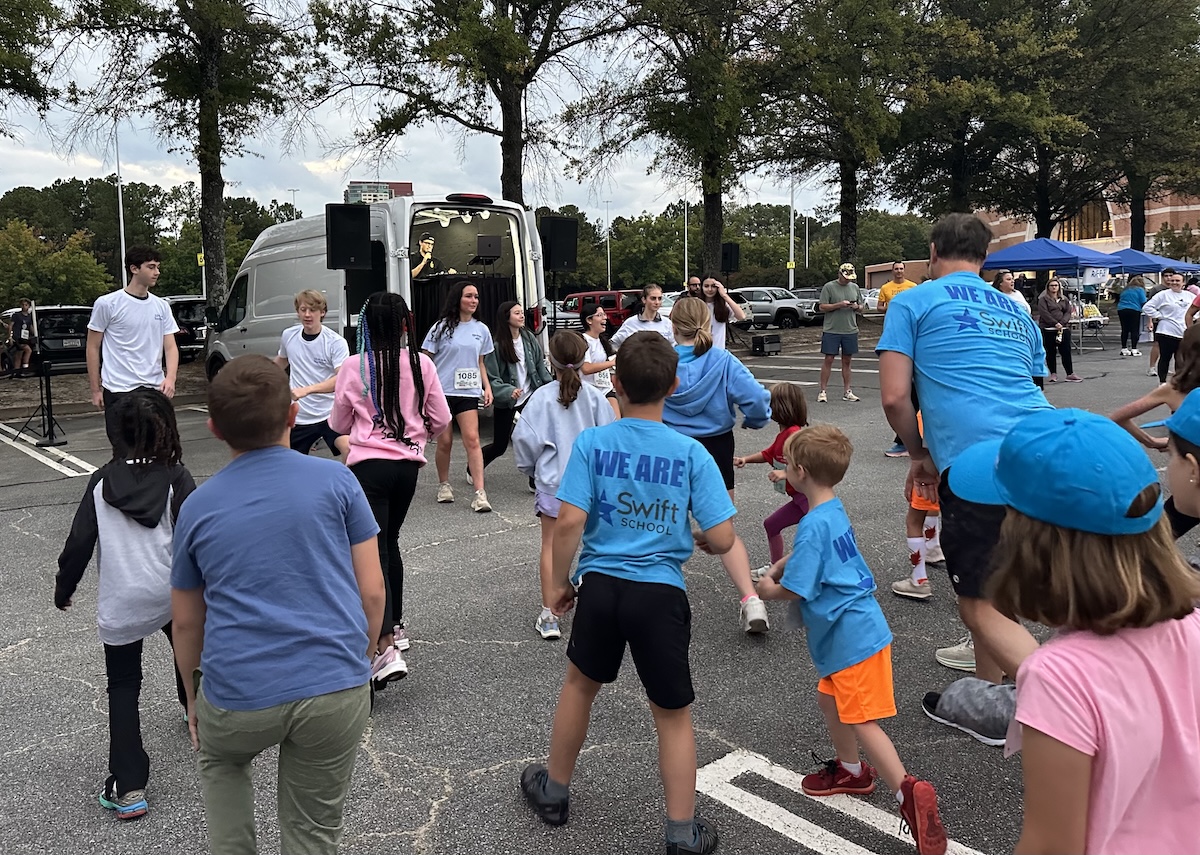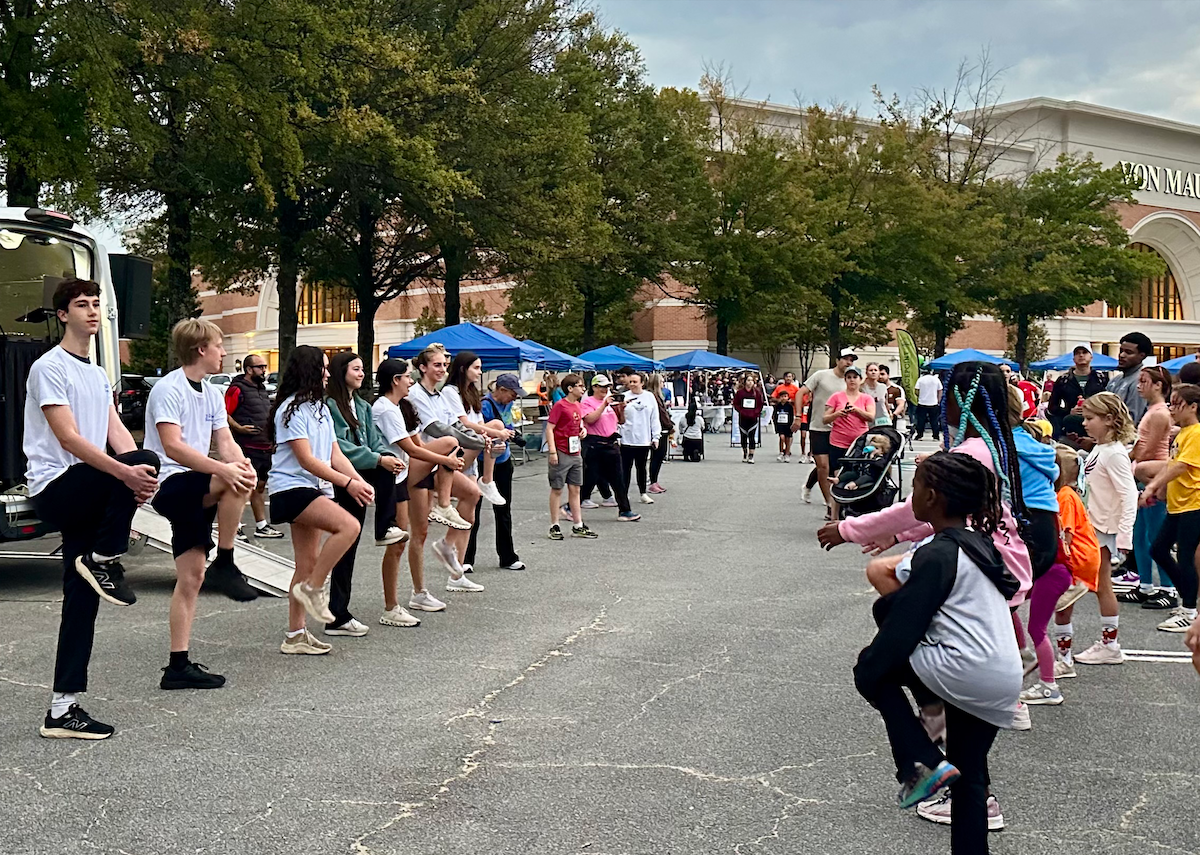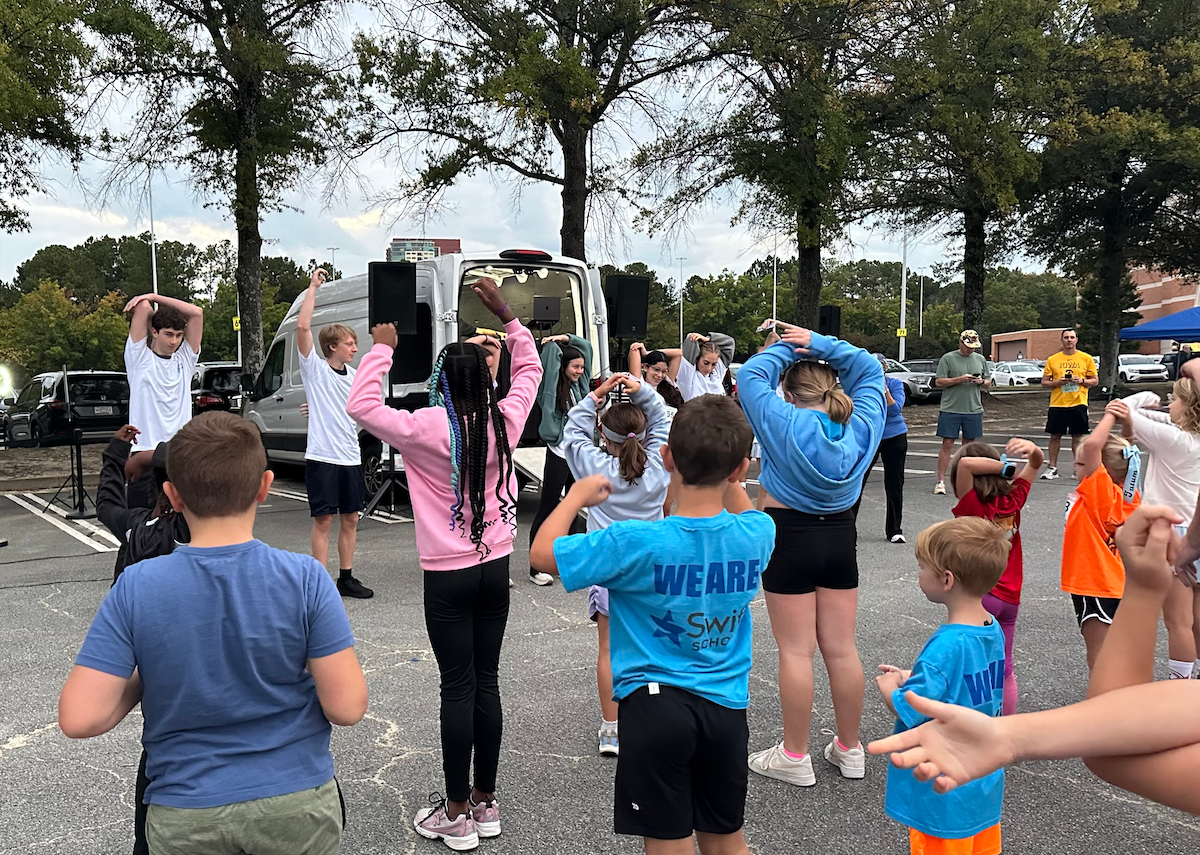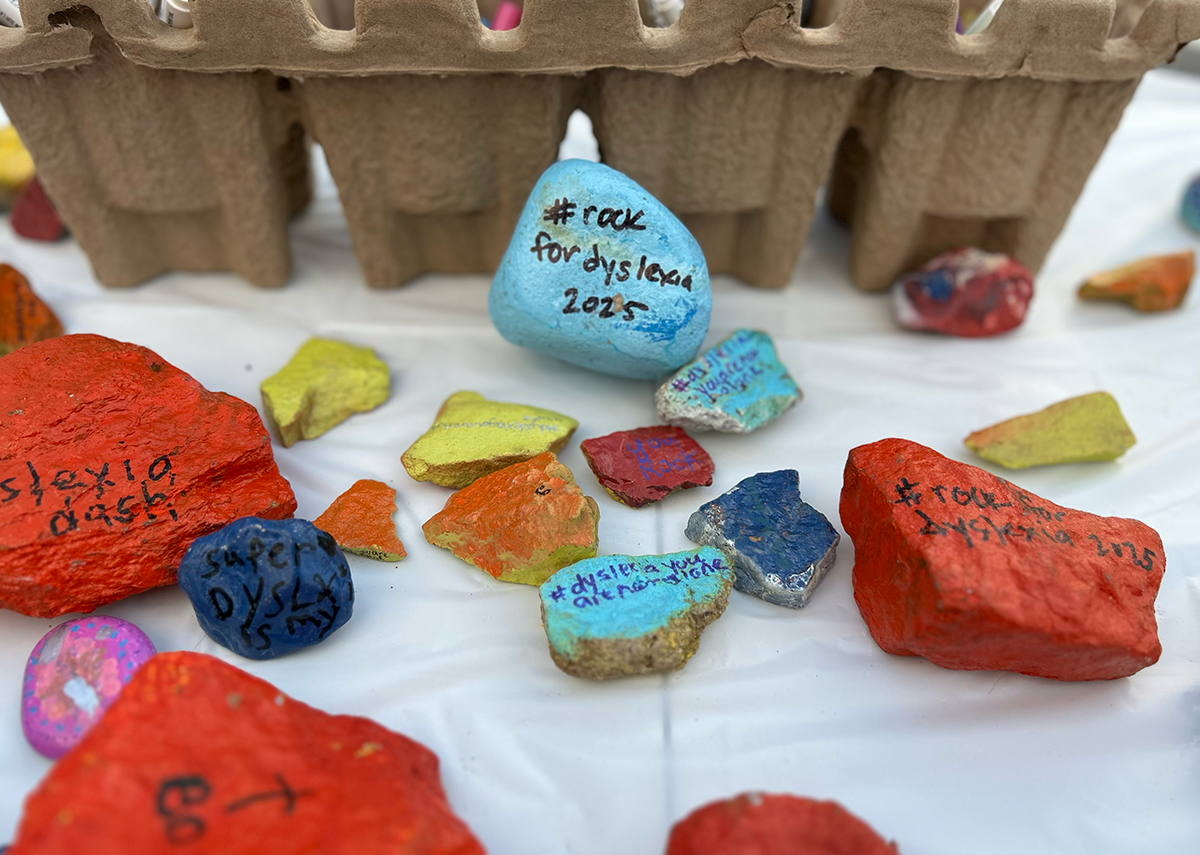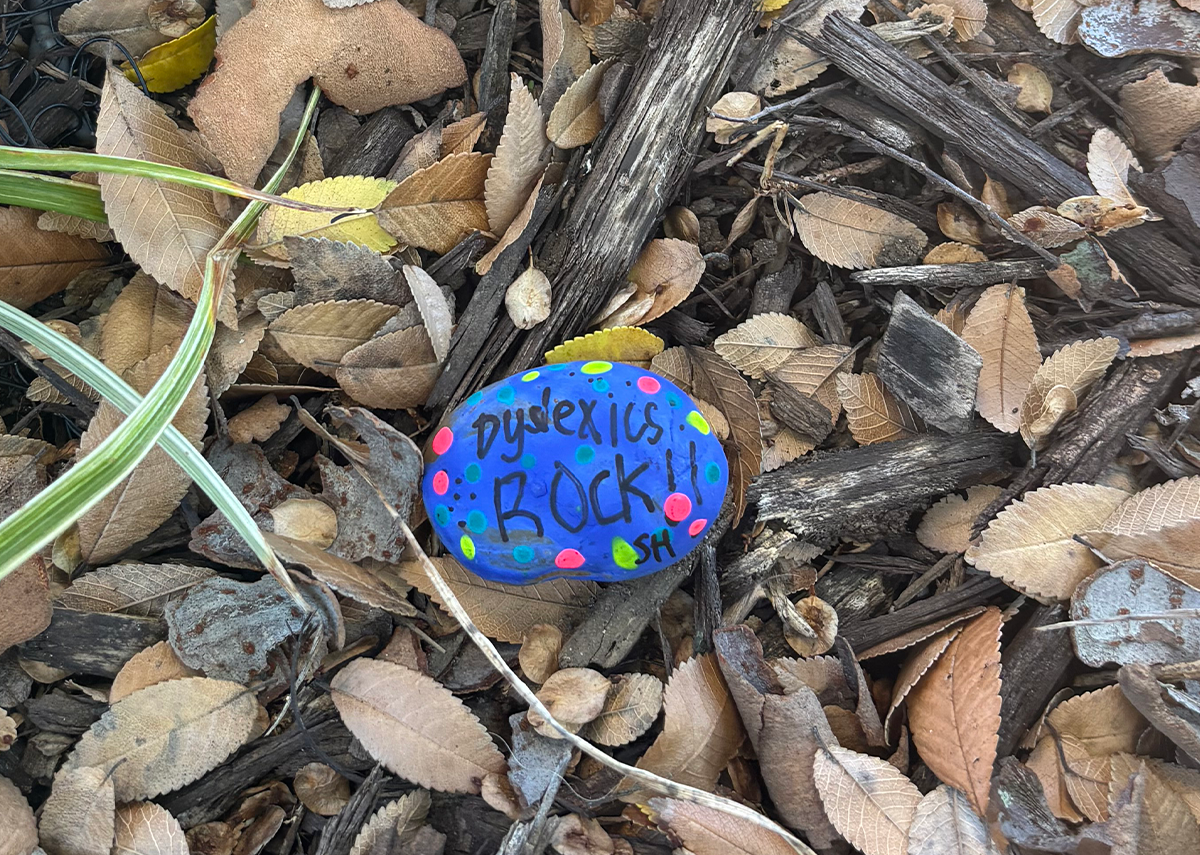At Mount Vernon, the way we teach is designed to support every learner, encouraging curiosity, creativity, and confidence through hands-on, inquiry-based experiences. This approach not only benefits all students but also naturally aligns with the strengths of dyslexic learners, who thrive in environments that value innovation, collaboration, and big-picture thinking. Through our growing partnership with the International Dyslexia Association (IDA), Mount Vernon students are extending this commitment beyond the classroom as members of the IDA-Georgia Teen Board, leading advocacy efforts and making a meaningful impact in the broader community.
A Partnership with Purpose
This year, Mount Vernon celebrates its largest group of students serving on the Georgia IDA Teen Board, with nine Upper School representatives. The Teen Board meets monthly to collaborate on outreach projects, plan community events, and support initiatives, including:
- The Dyslexia Dash – a 5K and 1-mile event to raise awareness and support for individuals with dyslexia. This year’s race took place on Saturday, October 18, with over 2,000 runners and a team of Mount Vernon volunteers helping with race warm-ups, manning water stations, cheering on runners, and running a kid zone.
- Rock for Dyslexia – a campaign where students paint messages of encouragement on rocks displayed across Atlanta with an annual competition in October.
- Student panels at the Annual Dyslexia Conference, which occurred on Oct 23 – 25, sharing their experiences and advocating for learners nationwide.
Mount Vernon volunteers helping with race warm-ups
Mentorship and Growth
Samantha Flowers, Director of Academic Resource Services, serves as one of six IDA- Teen Board Advisors along with Wendy Raynor and Janet Street, the IDA-Teen Board co-chairs. They support students in every stage of their leadership journey, guiding them to take initiative, communicate with purpose, and transform personal experiences into advocacy projects.
Students like Anna Hollis (Class of 2026, Team Captain) see these experiences as a leadership bootcamp: “It’s a good leadership opportunity because you have to be willing to tell them what’s next…every meeting I would send an e-mail to my team… this is what we need to work on this month.” She added, “It was a whole team effort.”
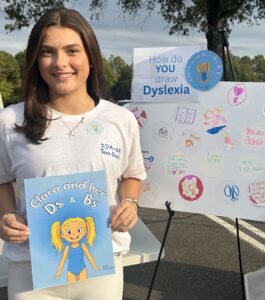 For Phia Calvo (Class of 2027), leading a personal project also helped develop her advocacy skills: “IDA gave me the opportunity to present [my book] at the Dyslexia Dash, which honestly helps me as a leader because it shows I can take initiative for what I want to do and it allows me to pursue my passion in that way.” She reflected, “Dyslexia has never stopped me from wanting to accomplish anything that I’ve wanted… it really just does not set a boundary.”
For Phia Calvo (Class of 2027), leading a personal project also helped develop her advocacy skills: “IDA gave me the opportunity to present [my book] at the Dyslexia Dash, which honestly helps me as a leader because it shows I can take initiative for what I want to do and it allows me to pursue my passion in that way.” She reflected, “Dyslexia has never stopped me from wanting to accomplish anything that I’ve wanted… it really just does not set a boundary.”
Learning that Empowers
Samantha Flowers emphasizes that Mount Vernon’s environment naturally supports diverse learners:
“The reason why a dyslexic learner is successful at Mount Vernon isn’t only because of our Academic Resource Department—it’s because of what we do for all students. We give students choice, flexibility, and time. They build relationships with teachers, have options for how to demonstrate learning, and are supported by a schedule that meets their needs. When you add technology and AI, it’s a game-changer. We’re not modifying the curriculum or lowering expectations—our students with dyslexia are often some of our highest performers. It’s simply the way we teach that lends itself to their success.”
Through the Teen Board advisors’ mentorship, students not only develop self-advocacy and leadership skills—they also build social capital, forming networks that extend beyond Mount Vernon. These relationships connect them to peers, mentors, and professionals who share their passion for advocacy and empower them to lead change within and beyond their school community.
A Network of Change Makers
The Teen Board’s impact extends beyond Mount Vernon. Student-led projects, such as Kenzie Leonard’s College Q&A Series, offer practical guidance to high school students nationwide by supporting their transition from high school to college. Mount Vernon students continue to innovate. Phia Calvo is working on a book about dyslexia, while Callie Letbetter led the Teen Board’s T-shirt design initiative. Leighton Scott hopes to take on even bigger leadership roles in the future: “Sometimes the information wasn’t super clear for me, and I look forward to improving upon communication to make this opportunity even better for the upcoming years..”
Mount Vernon continues to expand its Academic Resource offerings through initiatives like the Boost Program, which offers extended scaffolding for students who require additional literacy support beyond the early intervention years. Alongside expanded professional development for teachers, these initiatives embed support for diverse learners into the fabric of the School.
Through programs like the IDA Teen Board, Mount Vernon students are not just learning about advocacy, they’re living it. They are cultivating empathy, growing networks of influence, and proving that leadership doesn’t depend on title or age. Whether organizing an event, writing a book, or painting a rock, they’re showing what it means to lead from where you are, using connection, courage, and compassion to make an impact.
